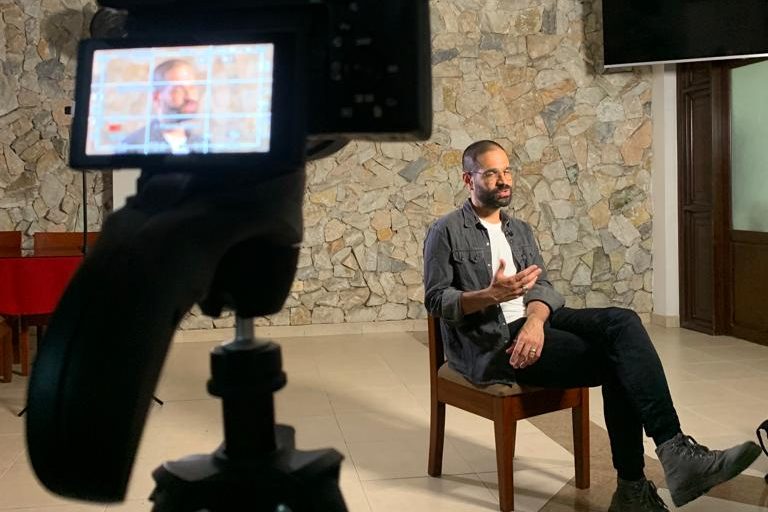Luis Eslava, Professor of International Law at Kent Law School, and his colleagues from the Ruptures21 initiative, are at the centre of a new documentary ‘Colombia’s Women: A Hidden Workforce’, which aired on Thursday 13 April, 6pm (GMT) on KMTV.
The documentary, which is part of the ‘Life/Gender/Work: Invisibility and Social Reproduction in Tumaco’ project – a large research undertaking that focuses on acute gender, economic, racial and political inequalities in Colombia – aims to generate new knowledge and support policy debates in Colombia and internationally on the importance of establishing national systems of care, in a post-pandemic world where communities are confronted with a wave of financial, environmental, and security challenges.
The project brings together a group of 24 interdisciplinary scholars, local art collectives, local NGOs and research institutes, including the Observatory for Women’s Equity and the Women’s World Bank Colombia, to explore the vital contribution of women’s work to maintain life in zones of conflict, using the town of Tumaco – located on Colombia’s Pacific Coast – as a main case study.
As Professor Eslava makes clear ‘without women’s unpaid and unrecognised work, life wouldn’t be possible in Tumaco, as is the case in many other contexts.’ He says: ‘This documentary brings to the surface the daily struggles that mark women’s lives in Tumaco, as well as the complex array of forces, actors and levels of governance that need to be taken into account in order to properly recognise women’s work.
‘It is becoming clear to governments and communities that there is an urgent need to reorganise how care is provided and supported. For women afflicted by conflict and economic precarity this has been a long-standing concern. They are responsible to look after their families and to make life possible in their communities, despite these challenges.
‘In this sense the documentary is a testimony of the richness of the Life/Gender/Work project and its contribution to ongoing efforts to develop a responsive national system of care in Colombia and similar locations.’
The documentary captures first-hand the ground-breaking use of a mix-method research approach and the close collaboration with women and key stakeholders in the project. Taking viewers from Bogotá (Colombia’s capital city), to Cali (the largest city near Tumaco), and to Tumaco itself, the film journeys the efforts entailed in generating academic research that has a global impact.
Tumaco has a population of 210,000, of which 65% is urban and semi-urban, and 88% is Afro-Colombian. Yet to recover from the Colombian civil war (1948–2016), Tumaco’s population still suffers from high under-/unemployment (~70%), low per capita income (~US$1,000 p.a.), high rates of teenage pregnancy, low levels of education, and a deepening of gender-based violence caused by the territorial dispute of armed groups and illegal economies. The municipality is also a significant producer of cocaine, and violence has been systemic for years: ~80 homicides per 100,000 occurred in 2017. In this midst, women’s daily work keeps the community moving.
Funded by the University of Kent, University of Essex and University of Warwick, the Life/Gender/Work project’s main outputs include the collection of new data on women’s economic and labour conditions and their sexual health based on a survey of 578 women in Tumaco; invaluable qualitative data gathered through focal groups; outreach events with local organisations and public officials; and a full training programme that benefited 30 women and men in positions of community leadership in Tumaco.
As a result of the Life/Gender/Work project, the research team is currently working with Tumaco’s Mayor’s Office and its Women’s Office to support the implementation of Tumaco’s new Women and Gender Equality Public Policy, which used inputs of the project in its design.
Watch the English and Spanish versions of the documentary here:
Colombia’s Women: A Hidden Workforce
Las Mujeres de Colombia: La Fuerza Laboral Invisible
Launch event screening, including a panel discussion with Professor Luis Eslava and Lina Buchely, Director, Observatory of Women’s Equity (OEM)

